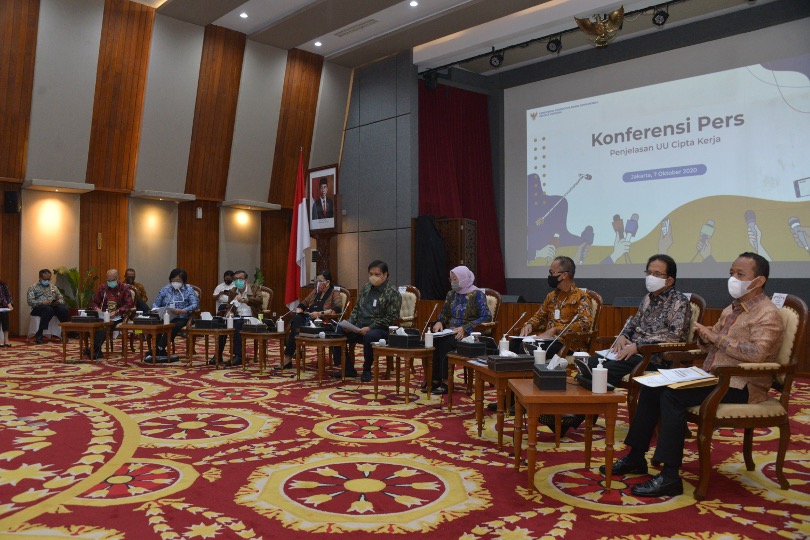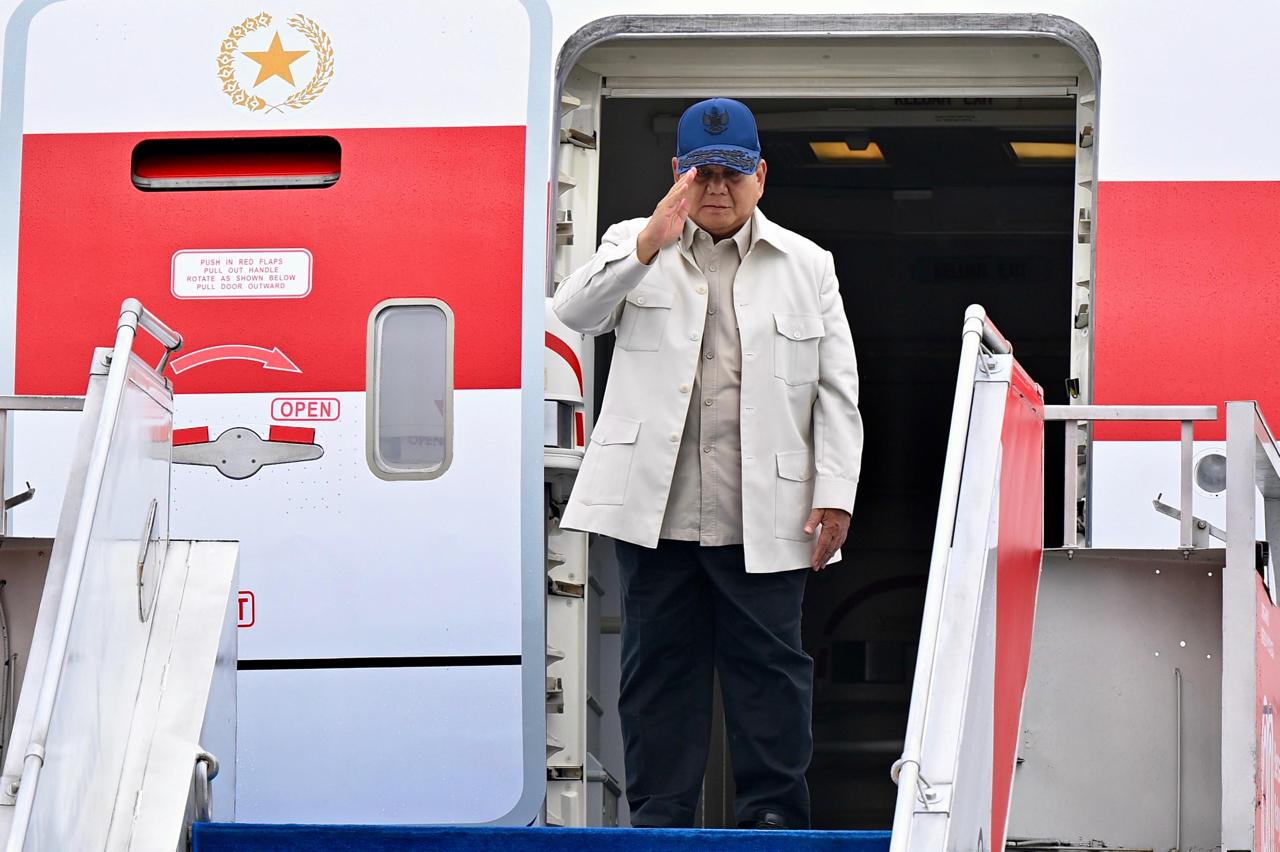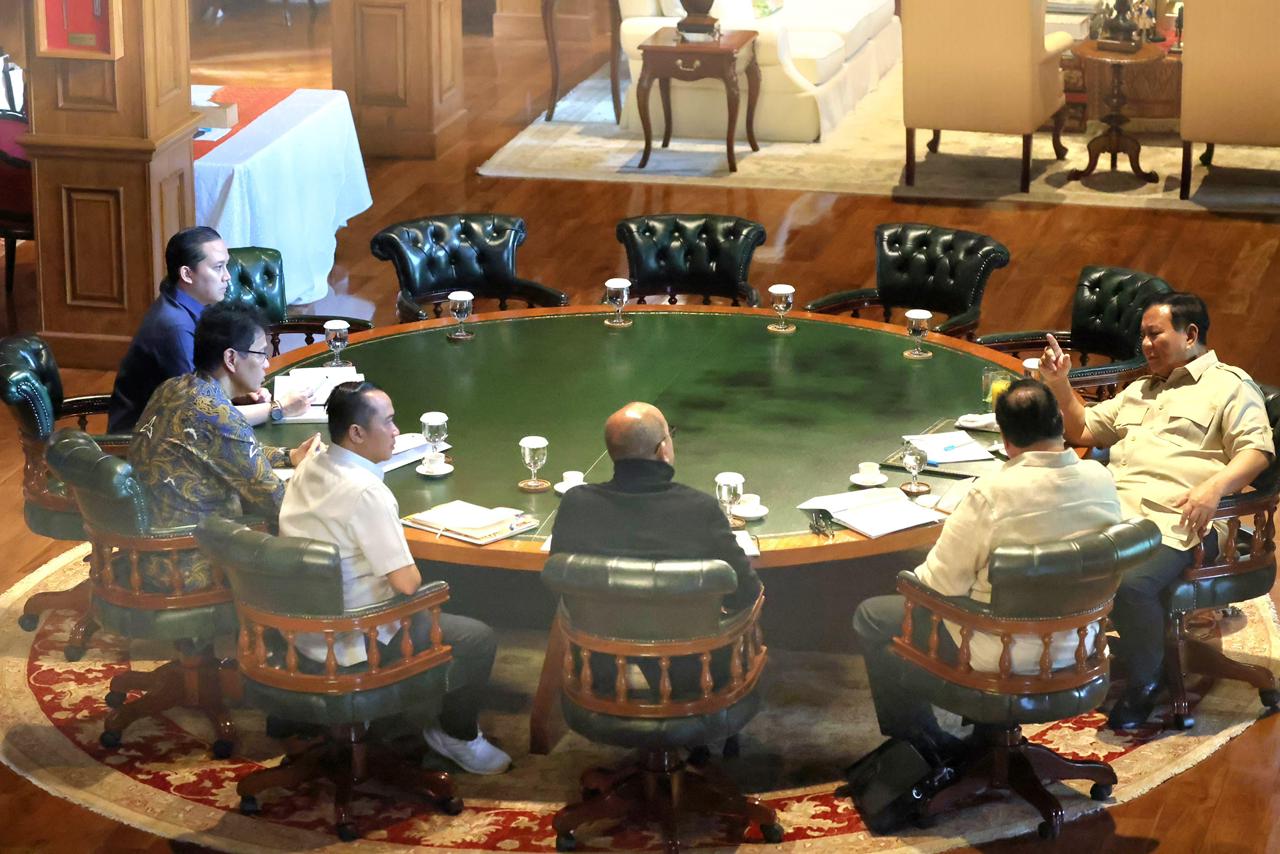Gov’t: Job Creation Law to Prioritize New Job Creation

Press Conference on Job Creation Law, Jakarta, Wednesday (7/10) (Photo by: PR of Coordinating Ministry for Economic Affairs).
Job Creation Law is expected to cut red tape and improve bureaucratic efficiency so as to push for greater job creation, Coordinating Minister for Economic Affairs Airlangga Hartarto said.
“As many as 3 million young people need jobs on a yearly basis. Especially in the midst of the current COVID-19 pandemic, the need for new job creation is vital,” Airlangga said at a joint press conference, Wednesday (7/10), to explain the substance of the Job Creation Law passed by the House of Representatives on Monday (5/10).
The Coordinating Minister also expressed hope that the Law can pull Indonesia out of the middle-income trap.
“Moreover, Indonesia has a demographic bonus. The Job Creation Law was formed by prioritizing the interests of the people who need assurance in working,” he said.
The Law, Airlangga continued, is expected to motivate the people to open their own business by utilizing the facilities provided by the Government for micro and small business actors. Through the new Law, licensing for MSEs is made easier, he added.
“The Job Creation Law also supports the Government’s efforts to eradicate corruption through the simplification of complicated licensing, thereby eliminating the practice of illegal levies,” Airlangga said.
The Coordinating Minister also highlighted labor clusters that were widely discussed in the community, especially related to issues/hoaxes circulating, which led to wrong and irresponsible perceptions.
“We emphasize that in the Job Creation Law, the minimum wage is not abolished. Wages are set by considering economic growth or inflation so that wages will not drop. The Law regulates that the wage of workers must be higher than the minimum wage,” he said.
Under the Job Creation Law, the Coordinating Minister said, the amount of severance pay is regulated so that workers get the assurance of severance pay and receive additional job loss insurance (JKP), which regulates that workers who have been terminated will receive other benefits in the form of increased competence (upskilling) and access to new job opportunities.
“Regarding exploitative working time, the number of working hours is the same as that in the Manpower Law. In addition, the Job Creation Law also does not eliminate the rights to menstruation and maternity leaves. Outsourced workers still get guaranteed wage protection and welfare. The rights of workers must also be protected if there is a change of outsourcing company,” Airlangga said.
On the foreign workers’ issue, the Coordinating Minister stated that the Law regulates that foreign workers may only work in Indonesia for certain positions with certain competencies for a certain time.
“Then, companies that employ foreign workers are required to have a foreign worker employment plan (RPTKA),” he said.
Airlangga also underlined that the Job Creation Law prioritizes the interests of the community, by providing various kinds of facilities for micro and small entrepreneurs, especially to develop their business. The Law provides convenience for single licensing for MSEs through registration and provides fiscal and financing incentives for the development and empowerment of MSMEs, he added.
“The (Central and Regional) Governments and State/Regional Owned Enterprises are obliged to allocate the provision of promotion platforms, business areas, or MSEs development in public infrastructure (terminals, airports, ports, stations, rest areas, and other public infrastructure),” Airlangga said.
Furthermore, Airlangga said that on the guarantee of halal products, the Job Creation Law guarantees the acceleration and assurance in the halal certification process by providing time limits for the process of issuing halal certificates and expanding the Halal Inspection Agency which can also be carried out by Islamic organizations and state universities.
“Even for MSEs, additional facilities are provided in the form of certification costs borne by the Government,” Airlangga stated. (PR of Coordinating Ministry for Economic Affairs/UN)
Translated by: Fairuzzamani Inayatillah
Reviewed by: Muhardi








